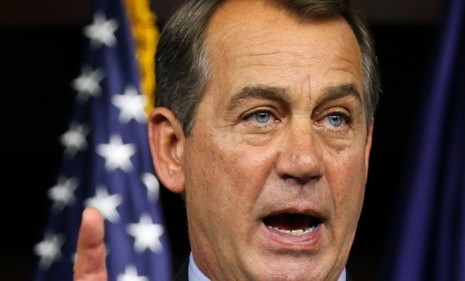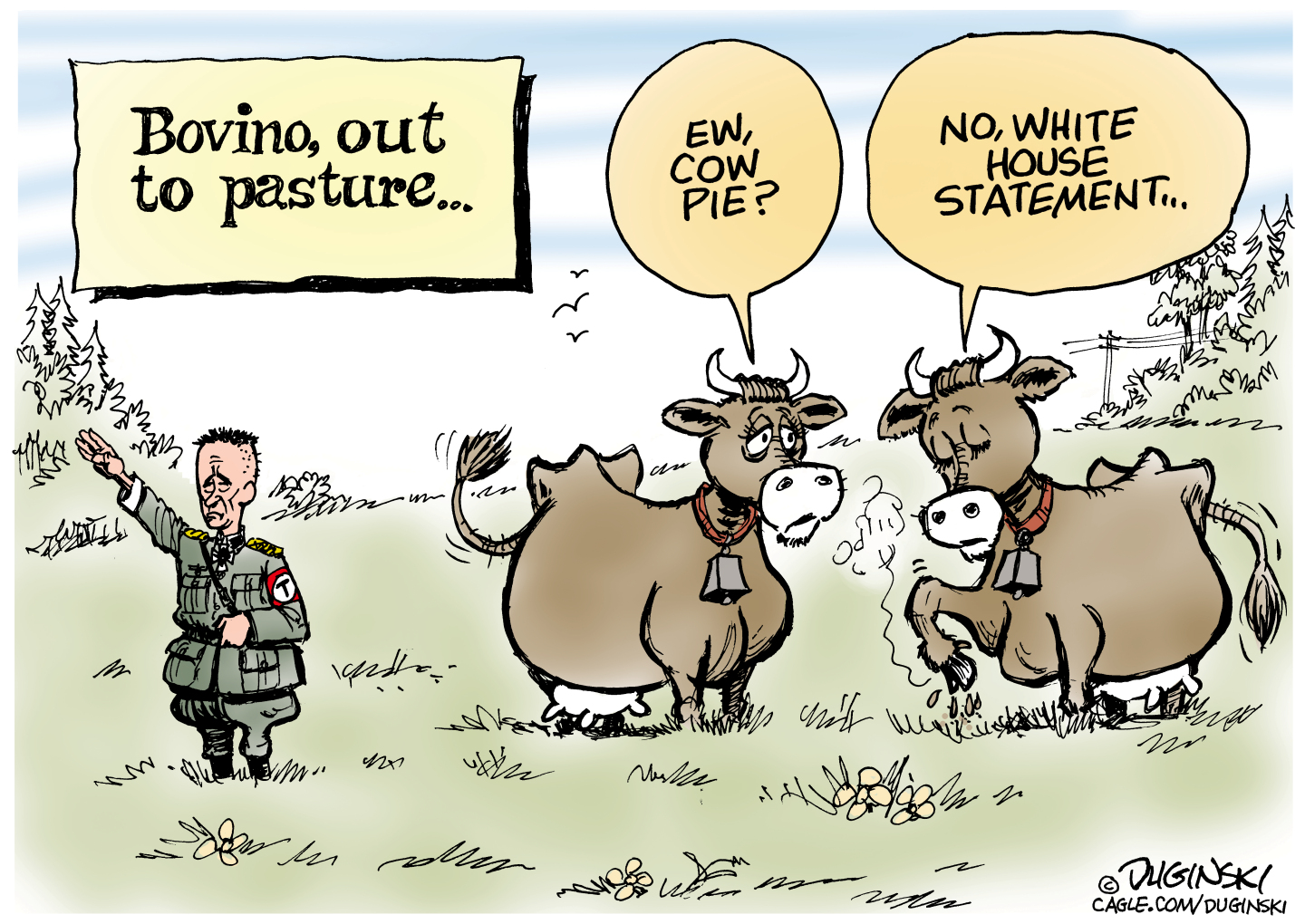What kind of Speaker would John Boehner be? 5 theories
How will the Ohio Republican define himself as the presumptive successor to Nancy Pelosi?

If Republicans win control of the House of Representatives next week, as most prognosticators predict, the odds-on favorite to be the next Speaker of the House is Ohio Republican John Boehner, the body's current minority leader. Boehner is a bon vivant from blue collar Ohio roots, whose love of golf, Camel cigarettes, and red wine is as legendary as his perpetually tan skin. But what kind of House Speaker would he be? (Watch Newt Gingrich endorse Boehner.) Here, five theories:
A kinder, gentler speaker
Boehner insists that, unlike Pelosi or his former mentor Newt Gingrich, he would be "a very different kind of politician" as Speaker, says Paul Kane in The Washington Post. Instead of shutting out the minority party, Boehner says he would let Democrats offer bills and amendments, which "lets the steam" out of the partisan animosity. Given his druthers, Boehner would probably lead like the "traditional, not unreasonable, frankly likable Republican" he is, says Todd Purdum in Vanity Fair.
The Week
Escape your echo chamber. Get the facts behind the news, plus analysis from multiple perspectives.

Sign up for The Week's Free Newsletters
From our morning news briefing to a weekly Good News Newsletter, get the best of The Week delivered directly to your inbox.
From our morning news briefing to a weekly Good News Newsletter, get the best of The Week delivered directly to your inbox.
A partisan warrior
It's clear that Boehner "doesn't want to be remembered or seen as an arm-twister" or rank partisan, says Ezra Klein in The Washington Post, but "I don't look back at the last two years and think of Boehner as a real stickler for civility and bipartisanship." And he will continue to "play hardball politics because his caucus will demand it," says Cynthia Tucker in The Atlanta Journal-Constitution. If he isn't "harshly, relentlessly partisan," he will face an insurrection from his "new crop of Tea Party candidates who equate compromise with treason."
A strategic pragmatist
"Boehner is by nature a salesman, a deal-maker, not an ideologue," says Vanity Fair's Purdum. His real leadership gift is "a calm and approachable manner, an insistence on strategic planning, a refusal to give up," says Nancy Benac in The Associated Press. That, plus his fund-raising prowess, explains his quick rise in GOP ranks and then his remarkable comeback after being kicked out of leadership in 1998. And it will help him maintain the "extraordinary discipline" he has managed in his caucus.
A free daily email with the biggest news stories of the day – and the best features from TheWeek.com
A deficit hawk
Boehner says his priority as Speaker would be to "cut the size of the government, not to shut it down." To do that, he tells National Journal's Major Garrett, he would "set up a process that makes it easier to cut spending," especially pork. One way to do that, he adds, is that "if a member has an amendment that would cut spending, it should get a vote. Period." Boehner has also pledged to replace the "Paygo" rule implemented by Democrats, which means all programs have to paid for, with "Cutgo," which would require cuts in spending to offset any new programs, say Daniel Stone, Eleanor Clift, and Andrew Romero in Newsweek.
A deficit disaster
"Cutgo" would be "an effective way to limit new spending programs," says Jonathan Chait in The New Republic, but it wouldn't stop Boehner's caucus from cutting taxes without paying for the drop in revenue. Our "structural deficit exploded" because the GOP similarly dropped "Paygo" a decade ago to pass the Bush tax cuts and Medicare drug bill. It's also worth noting that enacting the Boehner-endorsed "Pledge to America" "would add more than $700 billion to the debt," say Newsweek's Stone, Clift, and Romero.
-
 5 redundant cartoons about Greg Bovino's walking papers
5 redundant cartoons about Greg Bovino's walking papersCartoons Artists take on Bovino versus bovine, a new job description, and more
-
 31 political cartoons for January 2026
31 political cartoons for January 2026Cartoons Editorial cartoonists take on Donald Trump, ICE, the World Economic Forum in Davos, Greenland and more
-
 Political cartoons for January 31
Political cartoons for January 31Cartoons Saturday's political cartoons include congressional spin, Obamacare subsidies, and more
-
 The billionaires’ wealth tax: a catastrophe for California?
The billionaires’ wealth tax: a catastrophe for California?Talking Point Peter Thiel and Larry Page preparing to change state residency
-
 Bari Weiss’ ‘60 Minutes’ scandal is about more than one report
Bari Weiss’ ‘60 Minutes’ scandal is about more than one reportIN THE SPOTLIGHT By blocking an approved segment on a controversial prison holding US deportees in El Salvador, the editor-in-chief of CBS News has become the main story
-
 Has Zohran Mamdani shown the Democrats how to win again?
Has Zohran Mamdani shown the Democrats how to win again?Today’s Big Question New York City mayoral election touted as victory for left-wing populists but moderate centrist wins elsewhere present more complex path for Democratic Party
-
 Millions turn out for anti-Trump ‘No Kings’ rallies
Millions turn out for anti-Trump ‘No Kings’ ralliesSpeed Read An estimated 7 million people participated, 2 million more than at the first ‘No Kings’ protest in June
-
 Ghislaine Maxwell: angling for a Trump pardon
Ghislaine Maxwell: angling for a Trump pardonTalking Point Convicted sex trafficker's testimony could shed new light on president's links to Jeffrey Epstein
-
 The last words and final moments of 40 presidents
The last words and final moments of 40 presidentsThe Explainer Some are eloquent quotes worthy of the holders of the highest office in the nation, and others... aren't
-
 The JFK files: the truth at last?
The JFK files: the truth at last?In The Spotlight More than 64,000 previously classified documents relating the 1963 assassination of John F. Kennedy have been released by the Trump administration
-
 'Seriously, not literally': how should the world take Donald Trump?
'Seriously, not literally': how should the world take Donald Trump?Today's big question White House rhetoric and reality look likely to become increasingly blurred